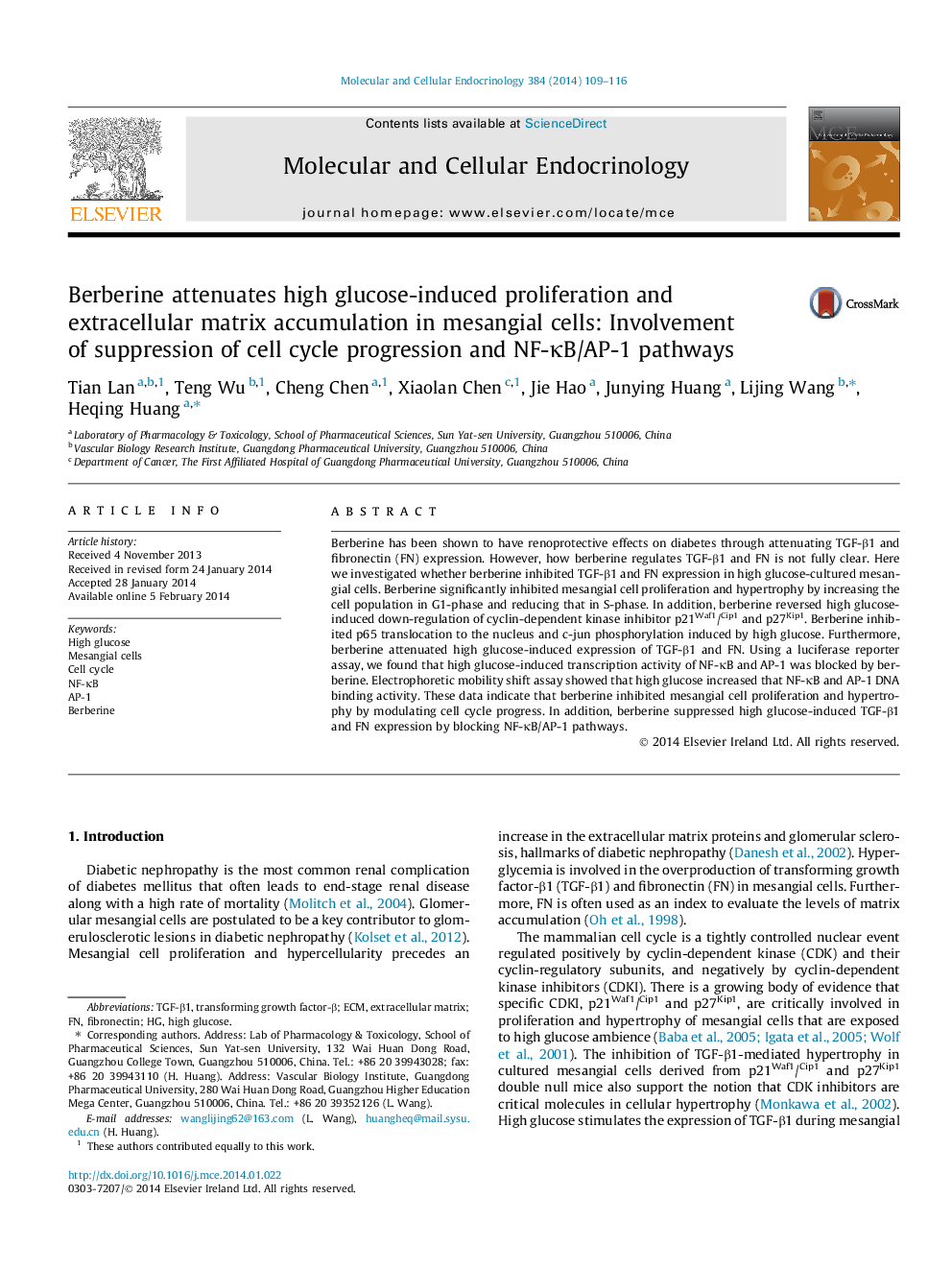| Article ID | Journal | Published Year | Pages | File Type |
|---|---|---|---|---|
| 2196053 | Molecular and Cellular Endocrinology | 2014 | 8 Pages |
•Berberine decreased HG-induced mesangial cell proliferation and hypertrophy.•Berberine decreased HG-induced cell cycle in mesangial cells.•Berberine attenuated HG-induced expression of TGF-β1 and FN.•Berberine blocked HG-induced NF-κB and AP-1 activity.
Berberine has been shown to have renoprotective effects on diabetes through attenuating TGF-β1 and fibronectin (FN) expression. However, how berberine regulates TGF-β1 and FN is not fully clear. Here we investigated whether berberine inhibited TGF-β1 and FN expression in high glucose-cultured mesangial cells. Berberine significantly inhibited mesangial cell proliferation and hypertrophy by increasing the cell population in G1-phase and reducing that in S-phase. In addition, berberine reversed high glucose-induced down-regulation of cyclin-dependent kinase inhibitor p21Waf1/Cip1 and p27Kip1. Berberine inhibited p65 translocation to the nucleus and c-jun phosphorylation induced by high glucose. Furthermore, berberine attenuated high glucose-induced expression of TGF-β1 and FN. Using a luciferase reporter assay, we found that high glucose-induced transcription activity of NF-κB and AP-1 was blocked by berberine. Electrophoretic mobility shift assay showed that high glucose increased that NF-κB and AP-1 DNA binding activity. These data indicate that berberine inhibited mesangial cell proliferation and hypertrophy by modulating cell cycle progress. In addition, berberine suppressed high glucose-induced TGF-β1 and FN expression by blocking NF-κB/AP-1 pathways.
